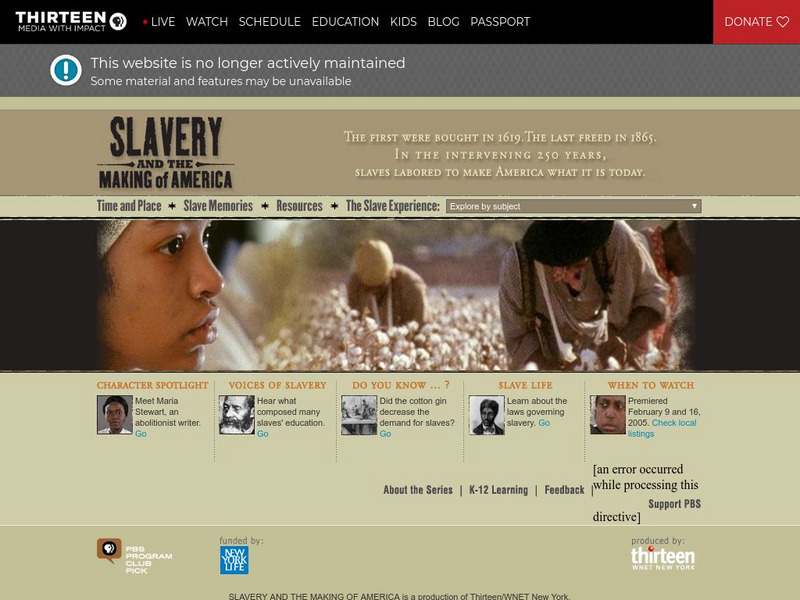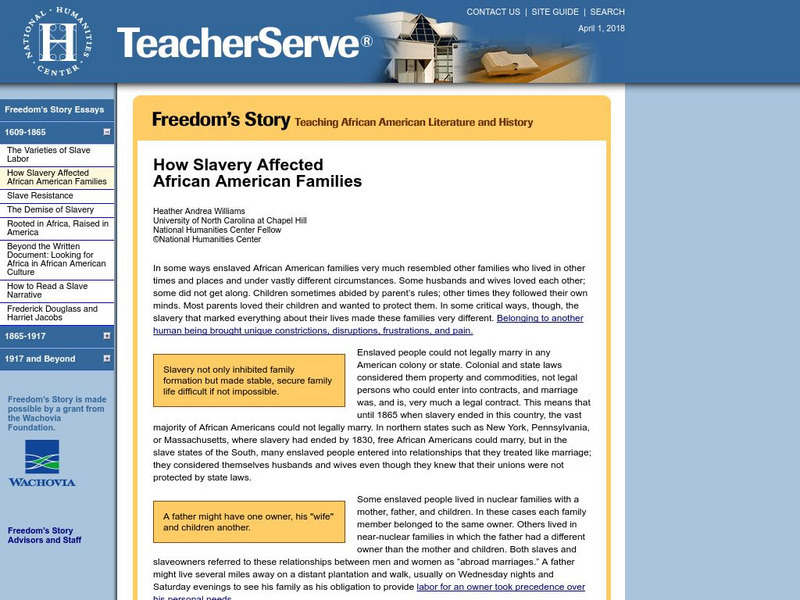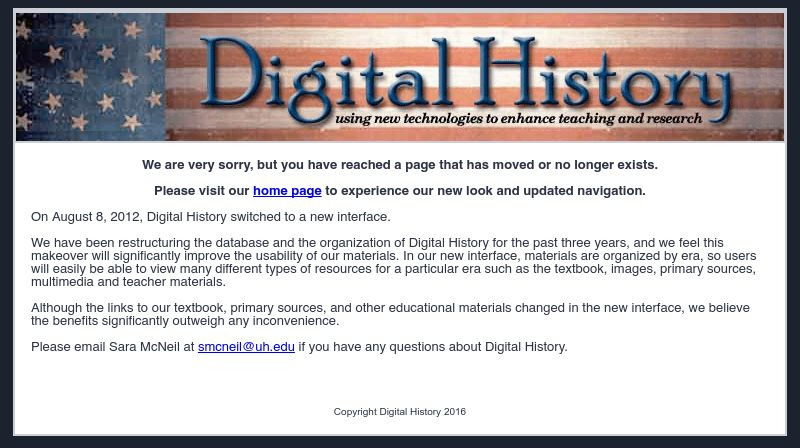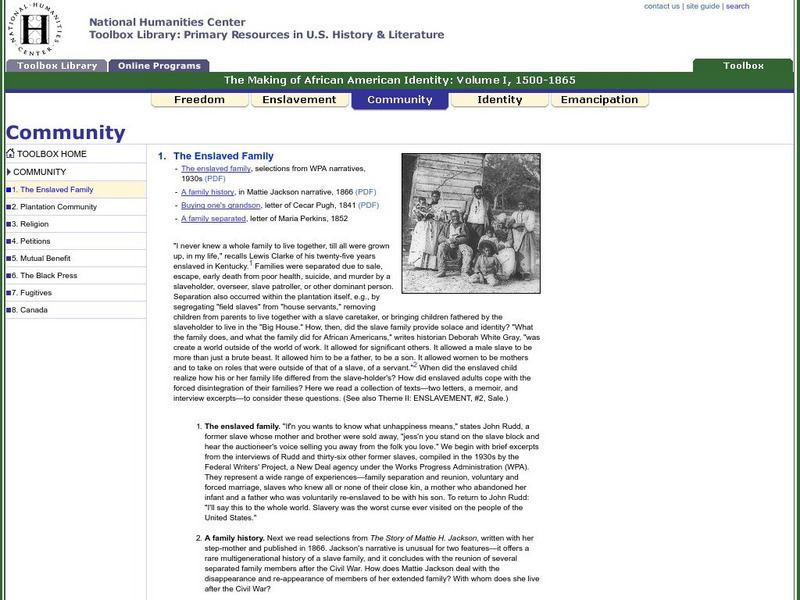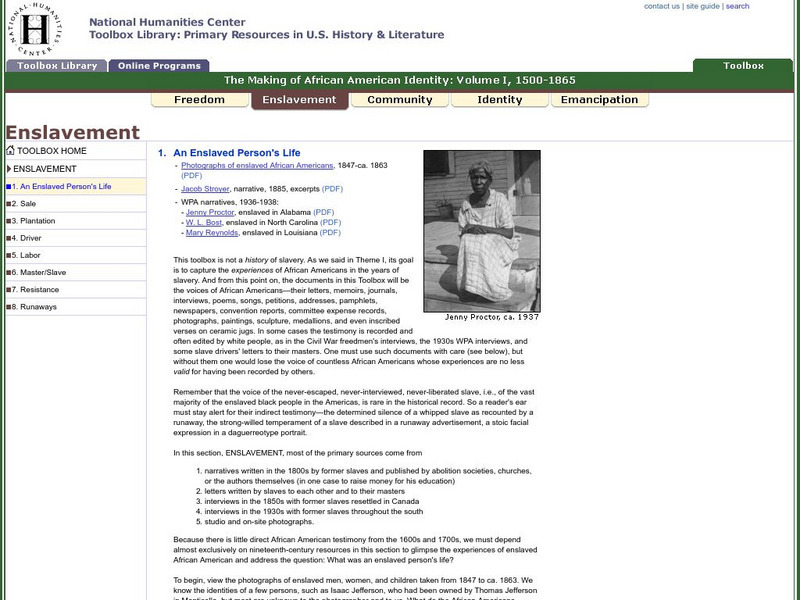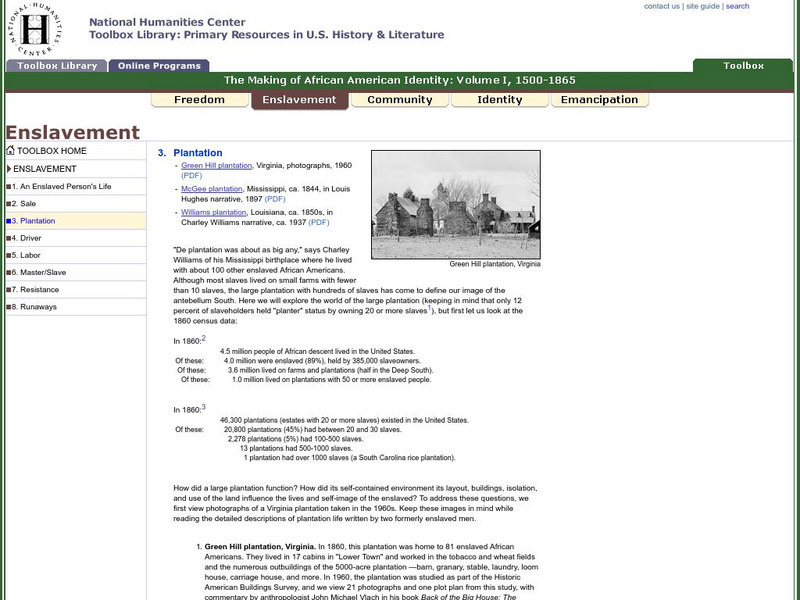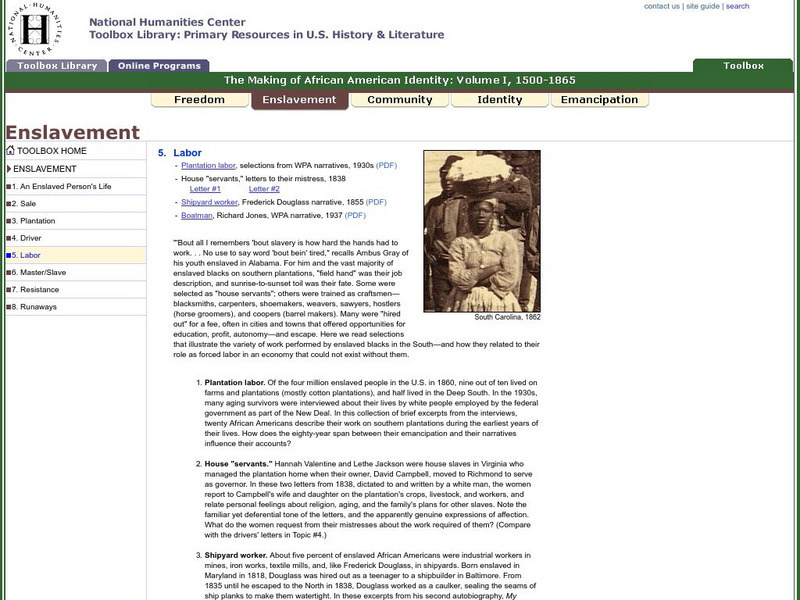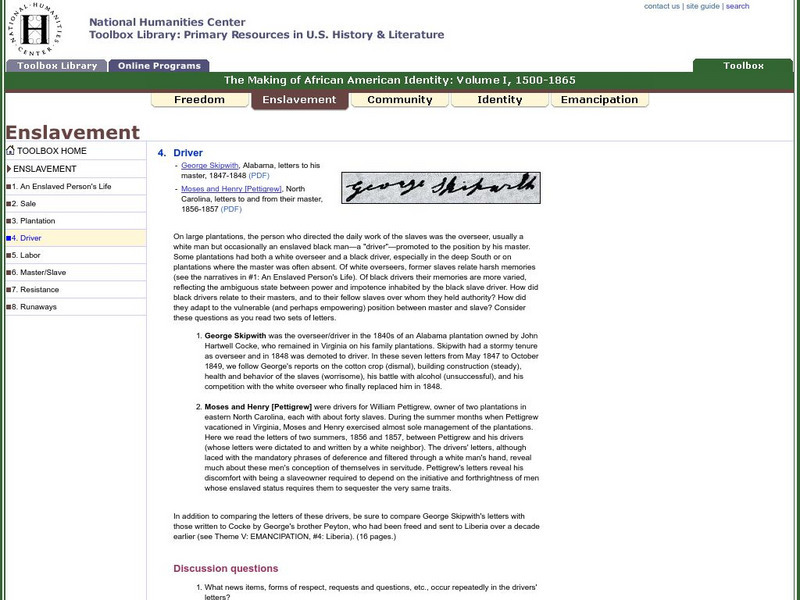Hi, what do you want to do?
Curated OER
Freedom and Dignity Project
Eleventh graders explore slavery and the civil war. In groups, 11th graders discuss and slavery and identify reasons for its beginning. In groups, they role-play a character for a talk show. Students determine what slavery was like in...
Curated OER
Graphing and Demography: The Domestic Slave Trade
Students create graphs or charts based on the data a narrative imbedded in this plan. They make them either by hand or by using Excel or a similar database program. This lesson utilizes technology in a meaningful way.
Curated OER
"An Eye For An Eye, A Tooth For A Tooth"
Sixth graders debate their reactions to two different historical documents about managing a society. In this U.S. history lesson plan, 6th graders read two articles on codes and laws from different time periods and debate their...
Curated OER
American Colonization Society Lesson Plan
Students read an article online "Colonization and Emigration" and break into debating groups. They research points that support their side, namely whether or not the American Colonization Society was for or against segregation. They...
The Henry Ford
Living Under Enslavement: African Americans on Hermitage Plantation
This virtual tour of the slave quarters of the Hermitage Plantation tells of the family life of slaves, their skills, and their resistance to the institution of slavery.
PBS
Wnet: Thirteen: Slavery & the Making of America
Using primary documents, oral histories, and other historical resources, discover how the arts of Africa, Europe, and pre-Civil War America influenced the culture of enslaved African Americans.
National Humanities Center
National Humanities Center: Teacher Serve: How Slavery Affected African American Families
University of North Carolina at Chapel Hill professor Heather Andrea Williams discusses the lives of enslaved African American families and how slavery made their lives different from other families.
PBS
Wnet: Thirteen: Slavery and the Making of America: Slave Religion
What religions did slaves bring from Africa to America? This PBS series site provides the historical overview of how early African Americans preserved African spiritual beliefs and practices while enslaved, converted to Christianity, and...
Other
African American Registry: The Moving Sacrifice of Margaret Garner
Read the tale of Margaret Garner, a runaway slave who took the life of her own child rather than see her returned to slavery. Click on Learn More to get the complete story.
Digital History
Digital History: Enslaved African Americans and Religious Revivalism
A brief look at the role of Christianity in the lives of slaves in the 1800s. See how evangelicalism was reflected in the way slaves practiced their religion.
National Humanities Center
National Humanities Center: Toolbox Library: The Enslaved Family, Making of African American Identity: Vol. 1
This site offers two letters and a memoir from the mid-nineteenth century, and interviews from the early-twentieth century, about the importance and the roles of enslaved families.
CommonLit
Common Lit: Text Sets: Slavery in America
People enslaved Africans for their enforced labor from before America's founding until the end of the Civil War. Learn about the history of slavery, its effects on a budding nation, and the fight to abolish it. This collection includes...
National Humanities Center
National Humanities Center: Toolbox Library: Enslavement, Making of African American Identity: V. 1, 1500 1865
Twenty-eight primary sources-historical documents, literary texts, and visual images-that explore plantation life, the qualities and conditions of slavery, work, and resistance to oppression.
National Humanities Center
National Humanities Center: Toolbox Library: An Enslaved Person's Life, Making of African American Identity
Various photographs of slaves from the pre-Civil War era, an autobiographical narrative of slavery, and three accounts recorded in the 1930s of the lives and conditions of former slaves are included in this large set of information...
National Humanities Center
National Humanities Center: Toolbox Library: Plantation, Making of African American Identity: V. 1
Numerous photographs of a Virginia plantation (taken in 1960), an autobiographical account of life on a Mississippi plantation from the nineteenth century, and an interview with a former slave about a Louisiana plantation recorded in 1937.
National Humanities Center
National Humanities Center: Toolbox Library: Labor, Making of African American Identity: V. 1
Selections of original accounts either written during slavery or recorded in the 1930s that depict work as a plantation laborer, house servant, shipyard worker or boatman.
National Humanities Center
National Humanities Center: Toolbox Library: Community, Making of African American Identity: V. 1, 1500 1865
Twenty nine primary sources-historical documents, literary texts, and visual images-that explore how enslaved individuals and families coped with, adjusted to, maintained communities within, and opposed the system of oppression.
National Humanities Center
National Humanities Center: Toolbox Library: Driver, Making of African American Identity: V. 1
Unusual letters from black slave drivers, and in one case, letters in reply from the white slave owner, about crops, labor, and conditions on plantations in the mid-1850s.
National Women’s History Museum
National Women's History Museum: Phillis Wheatley
Despite spending much of her life enslaved, Phillis Wheatley was the first African American woman to publish a book of poems.










